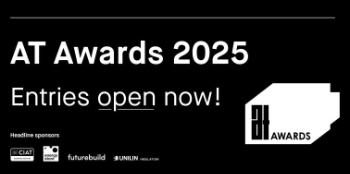Performance management plan
In construction, (and in manufacturing), innovative new methods and techniques have been introduced to try and improve performance levels, such as lean construction, total quality management (TQM), and value management.
Performance management is a key issue in the construction industry, which is often criticised for poor productivity compared with other industries and other countries, and so some organisations prepare performance management plans to ensure continuous improvement. Organisations that have effective performance management plans can experience increased productivity and higher levels of employee motivation and attainment.
Performance management is the process of supporting and enabling employees to work in a way that allows the organisation to efficiently and effectively meet its needs. Managers are able to communicate with employees and provide feedback on their performance.
A performance management plan should begin by defining role-based competencies and behaviours for every employee. This enables employees to know precisely what is expected of them.
This assessment should take place as soon as they start working for the organisation, and should be revisited and revised regularly if necessary. Reviews are often annual, but some organisations review on a quarterly or half-yearly basis. Frequent reviews can provide for a more fluid assessment process, with negative or less efficient behaviours being identified and addressed earlier. However, it can be more time-consuming for managers and HR teams, especially in large organisations.
Online talent management tools are available that allow managers and peers to give feedback on employees’ work and track performance ratings in databases. Performance evaluation of this kind is designed to assess past levels of goal achievements, assist in identifying future goals and objectives, and encourage and improve communication between employee and manager.
The Balanced Score Card (BSC) is a performance management system that comprises four main measurement categories, each of which are sub-divided into a wide range of other measures. It incorporates ‘leading’ and ‘lagging’ indicators such as client perspective, internal/business processes, learning and growth, and financial, to evaluate whether strategic goals are being sufficiently moved forwards by the organisation.
The European Foundation for Quality Management (EFQM) Excellence Model is an excellence framework for organisational management, which is designed to help increase competitiveness. It does this by measuring the position of an organisation on the ‘path to excellence’, and helping identify and understand any gaps and potential solutions.
[edit] Related articles on Designing Buildings Wiki
Featured articles and news
The Architectural Technology Awards
The AT Awards 2025 are open for entries!
ECA Blueprint for Electrification
The 'mosaic of interconnected challenges' and how to deliver the UK’s Transition to Clean Power.
Grenfell Tower Principal Contractor Award notice
Tower repair and maintenance contractor announced as demolition contractor.
Passivhaus social homes benefit from heat pump service
Sixteen new homes designed and built to achieve Passivhaus constructed in Dumfries & Galloway.
CABE Publishes Results of 2025 Building Control Survey
Concern over lack of understanding of how roles have changed since the introduction of the BSA 2022.
British Architectural Sculpture 1851-1951
A rich heritage of decorative and figurative sculpture. Book review.
A programme to tackle the lack of diversity.
Independent Building Control review panel
Five members of the newly established, Grenfell Tower Inquiry recommended, panel appointed.
Welsh Recharging Electrical Skills Charter progresses
ECA progressing on the ‘asks’ of the Recharging Electrical Skills Charter at the Senedd in Wales.
A brief history from 1890s to 2020s.
CIOB and CORBON combine forces
To elevate professional standards in Nigeria’s construction industry.
Amendment to the GB Energy Bill welcomed by ECA
Move prevents nationally-owned energy company from investing in solar panels produced by modern slavery.
Gregor Harvie argues that AI is state-sanctioned theft of IP.
Heat pumps, vehicle chargers and heating appliances must be sold with smart functionality.
Experimental AI housing target help for councils
Experimental AI could help councils meet housing targets by digitising records.
New-style degrees set for reformed ARB accreditation
Following the ARB Tomorrow's Architects competency outcomes for Architects.
BSRIA Occupant Wellbeing survey BOW
Occupant satisfaction and wellbeing tool inc. physical environment, indoor facilities, functionality and accessibility.























